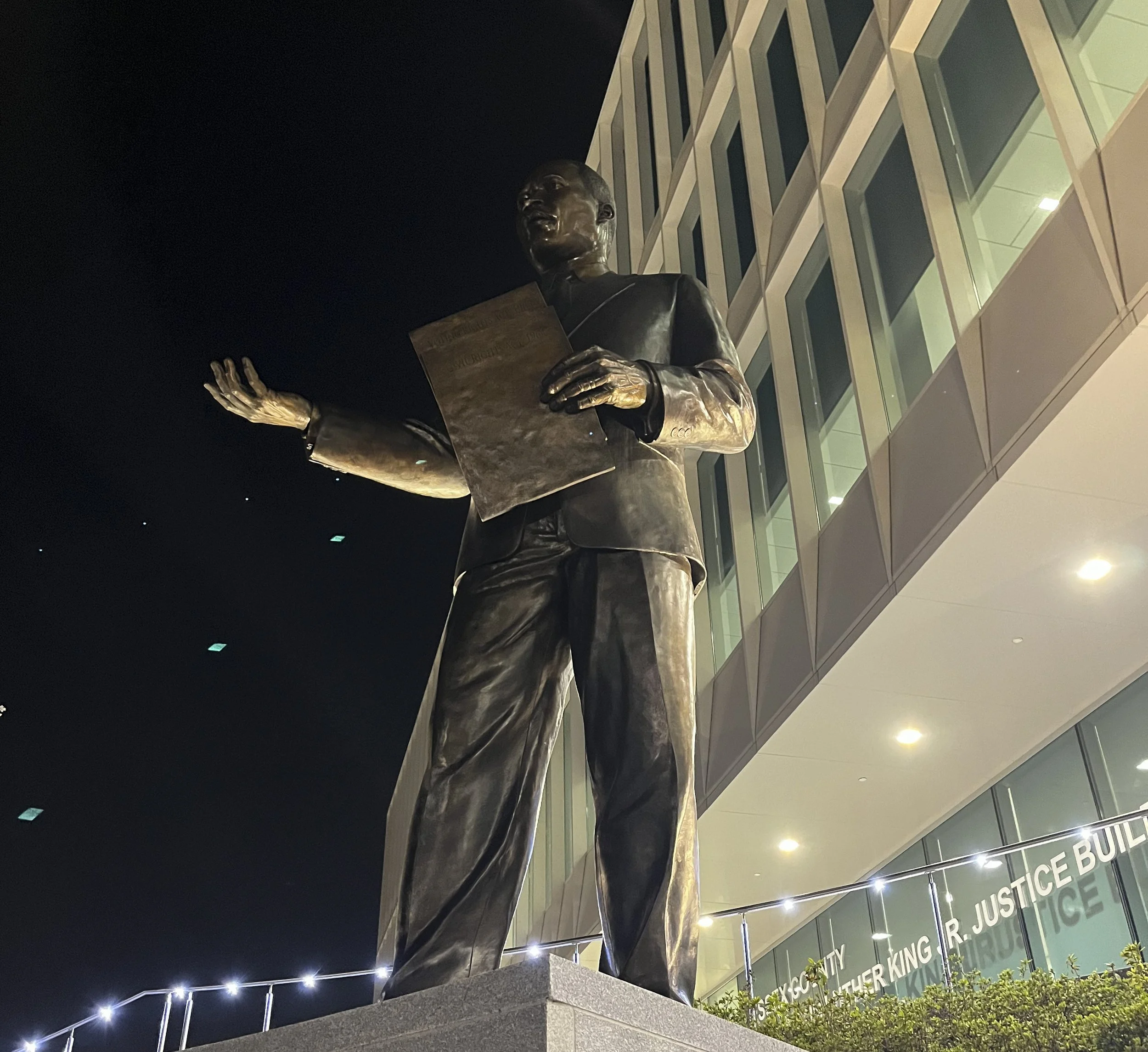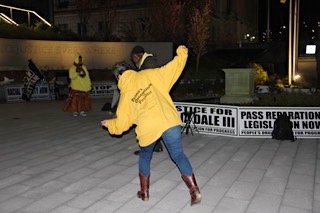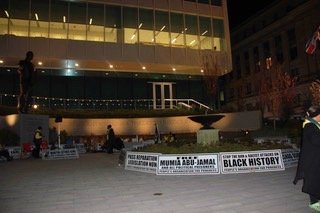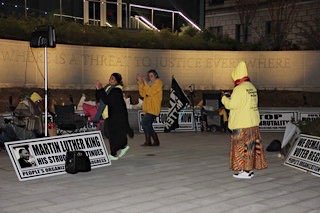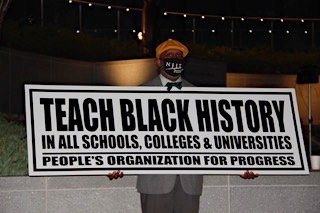Activists hold overnight vigil on the anniversary of Martin Luther King, Jr.’s assassination
The Dr. Martin Luther King statue in front of the Essex County Dr. Martin Luther King Justice Building, Newark, N.J. (Photo courtesy of Ande Richards)
Fifty-five years later, his legacy stands: "The deep rumblings of discontent that we hear today is the thunder of disinherited masses, rising from dungeons of oppression," Martin Luther King, Jr. – Where Do We Go From Here: Chaos or Community.
On April 4, the People's Organization for Progress (POP) held its annual march, followed by a vigil to commemorate the assassination of Martin Luther King, Jr. (MLK) The rally brought forth organizations and individuals from across the state and river on the front lines of racial, political, and economic justice today.
With the sun high and the cool wind overhead, marchers took to the usual route from the Essex County Courthouse to the federal office building in downtown Newark: young and old, Black and white, immigrants and citizens held their banners and belted out the battle cries for peace and justice.
"Ain't gonna be no justice, ain't gonna be no peace", Lawrence Hamm's voice reverberated over the loudspeaker, quickening the marchers' steps as it descended on their ears.
Representatives of groups dedicated to organizing for voting rights, unions, police reform and accountability, economic justice, racial equality, and more marched for over two hours. They rested at the MLK statue's feet for a round of speakers.
As twilight hastened, temperatures dropped, speakers and marchers said their farewells, but a handful of sturdy POP members settled in for an overnight vigil: A test, perhaps, of the stamina needed for future long-haul protests.
It was termed a "sunset to sunrise overnight vigil" in honor of the long fight by King and others for a Poor People's Campaign. POP members and supporters framed themselves in a semicircle out front of the Martin Luther King Justice Building at the base of the MLK statue.
The small yet fearless group of POP members and a few supporters laid out their blankets and chairs and settled in for the night. Friends stopped by to lend support and sustenance, like professor Linda McDonald Carter, "I was intrigued. It had been some time since I heard anyone call anything a vigil outside of a funeral. And I got an invite from one of my students, Brandon Burbank, who is part of the Rutgers strike. We need more of these."
As part of social justice movements, vigils are nonviolent demonstrations of protest to engage the community, build coalitions, and create awareness, but they must be part of collective action. For the past 40 years, POP has been a consistent social justice organization calling out injustices and leading the fight to pass several legislative bills, including one for a Civilian Complaint Review Board and another for a Reparations Task Force.
Brandon Burbank, Rutgers University-Newark (RU-N) junior studying English, shared his unique experience, "The vigil on April 4 was fantastic. It was a great example of Newark's political scene, which reflects what our community is truly about. The people in attendance felt like a big family, and nobody was excluded from the mutual love. The speakers each resonated with me in their own ways and they did an amazing job of exercising their first amendment right to a peaceful protest. I am proud I was part of such an event and excited for what the future of Newark holds."
The vigil was inspiring and powerful for Paola Benitez, an immigrant and RU-N junior with her eyes set on a law degree, “The peaceful march and all the organizations and people that showed up are great examples of democracy in our communities and throughout the nation. And to be surrounded by leaders who have fought for their civil rights is an inspiration and a great example to learn from in aspiring young leaders. We are living through times when our voice and solidarity are necessary to meet our demands, like our strike at Rutgers."
Some had taken their leave by midnight, and temperatures were much lower, but the small group's spirit remained high. The earlier rhetoric of the march had given way to a quieter posture while speeches of Dr. King played through the loudspeaker, and activists by day became neighbors in the night.
By mid-morning, the songs of Bob Marley and Sugar Hill Gang filled the quiet as dancing and singing were interspersed between political discussions on policing and economic justice as they deepened their political analysis on movement building and organizing.
As dawn broke, a smaller yet determined group had made it through the night of song, dance, laughter, and discussions stronger and more committed to doing the work King and others had long engaged in.
In the prophetic words of Dr. King that continue to inspire activists across the world, "I am convinced that if we are to get on the right side of the world revolution, we as a nation must undergo a radical revolution of values. We must rapidly begin—we must rapidly begin the shift from a thing-oriented society to a person-oriented society. When machines and computers, profit motives and property rights are considered more important than people, the giant triplets of racism, extreme materialism and militarism are incapable of being conquered."

